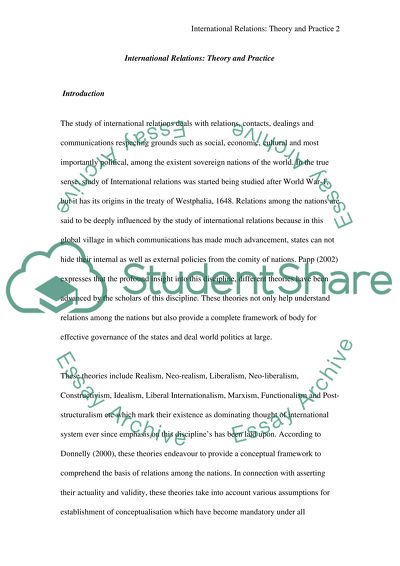Cite this document
(Explanatory and Constitutive Approaches in International Relations Research Paper, n.d.)
Explanatory and Constitutive Approaches in International Relations Research Paper. Retrieved from https://studentshare.org/politics/1572625-critically-examine-the-distinctions-between-explanatory-and-constitutive-theories-of-international-relations-illustrating-your-argument-with-insights-from-a-variety-of-theoretical-perspectives
Explanatory and Constitutive Approaches in International Relations Research Paper. Retrieved from https://studentshare.org/politics/1572625-critically-examine-the-distinctions-between-explanatory-and-constitutive-theories-of-international-relations-illustrating-your-argument-with-insights-from-a-variety-of-theoretical-perspectives
(Explanatory and Constitutive Approaches in International Relations Research Paper)
Explanatory and Constitutive Approaches in International Relations Research Paper. https://studentshare.org/politics/1572625-critically-examine-the-distinctions-between-explanatory-and-constitutive-theories-of-international-relations-illustrating-your-argument-with-insights-from-a-variety-of-theoretical-perspectives.
Explanatory and Constitutive Approaches in International Relations Research Paper. https://studentshare.org/politics/1572625-critically-examine-the-distinctions-between-explanatory-and-constitutive-theories-of-international-relations-illustrating-your-argument-with-insights-from-a-variety-of-theoretical-perspectives.
“Explanatory and Constitutive Approaches in International Relations Research Paper”. https://studentshare.org/politics/1572625-critically-examine-the-distinctions-between-explanatory-and-constitutive-theories-of-international-relations-illustrating-your-argument-with-insights-from-a-variety-of-theoretical-perspectives.


